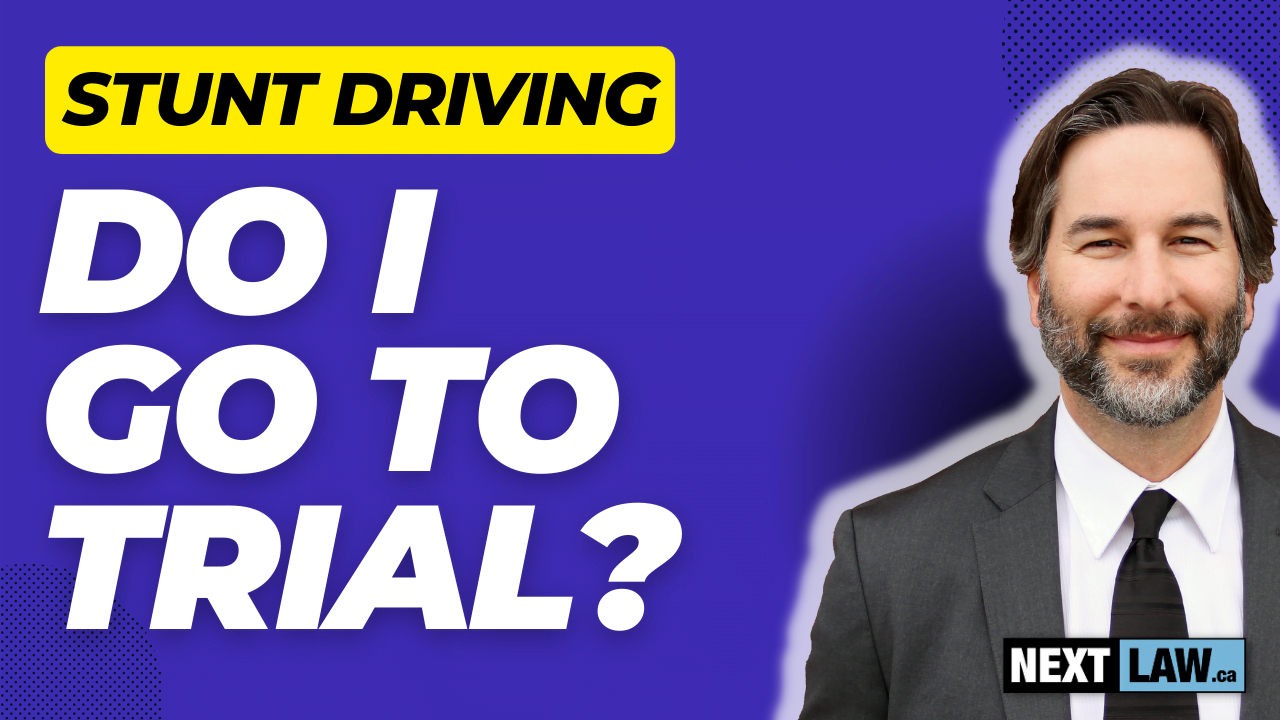Are you facing a “Stunt Driving” charge in Ontario? It’s natural to be concerned and to consider every possible avenue to challenge the charge. However, understanding the nature of this offence is crucial. Let’s dive deep and simplify this for you.
What type of charge is Stunt Driving in Ontario?
Stunt Driving is what’s called a Strict Liability Offence in Ontario. What does that mean?
- Strict Liability Offence: It means the prosecutor only needs to show that the unlawful action took place. They don’t need to prove why you did it. If found guilty, you could be facing fines and even jail time.
What This Means for Your Stunt Driving Case
The law doesn’t concern itself with why you were stunt driving. Arguments like “I was late for work” or “I didn’t know the speed limit” won’t work in your defense. What matters is evidence, like radar readings, showing you were excessively speeding or racing.
Stunt Driving Trial: What’s At Stake?
If you decide to go to trial, you’ll be challenging evidence like radar readings or the officer’s notes. It’s crucial to note:
- Evidence Matters: The trial will focus on potential errors in evidence, not on your reasons for stunt driving.
Risks of a Trial: If the trial doesn’t go in your favour, you’ll be convicted of Stunt Driving. This isn’t a light matter. Consequences include a 1-3 year license suspension, fines ranging from $2,000 – $10,000, potential jail time, and other penalties. These repercussions can severely impact your life, possibly affecting your job and family.
So, What Should You Do?
Seek legal advice. Making a mistake can lead to an automatic license suspension. It’s not a TV courtroom drama – the stakes are real and high. Consulting a law firm specializing in Stunt Driving can guide you through the process and help safeguard your license.
Remember, knowledge is power. Understand your options and the possible outcomes. Get the right legal guidance to navigate the complexities of a Stunt Driving charge in Ontario.
What Does the Law Say About Stunt Driving Charges in Ontario?
In Ontario, Stunt Driving is considered a serious offense under Section 172(1) of the Highway Traffic Act. The law views anyone charged with Stunt Driving as a 'public safety threat.' If you've driven 50km or more over an 80km speed limit, or 40km or more in a zone with a limit under 80km, you could face a Stunt Driving charge. The offense is considered grave regardless of the reason for speeding.
What Happens When You're Charged with Both Stunt Driving and No Insurance in Ontario?
Being charged with both Stunt Driving and No Insurance in Ontario is a particularly challenging legal situation. You're not only seen as a public danger due to your reckless driving but also because you lack insurance coverage. This makes you unable to compensate anyone who might be harmed due to your driving. The court is likely to have little room for leniency, making it crucial to seek specialized legal advice.


